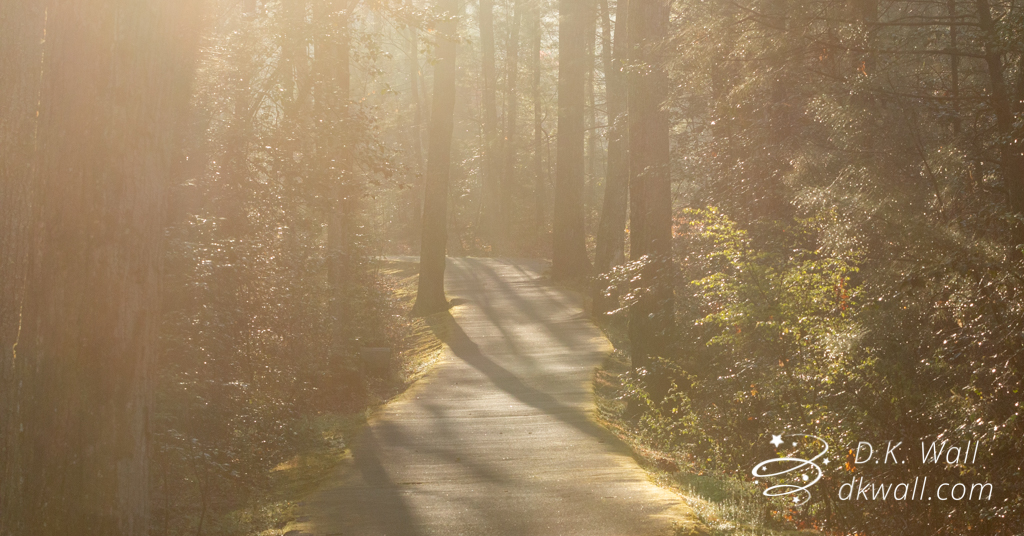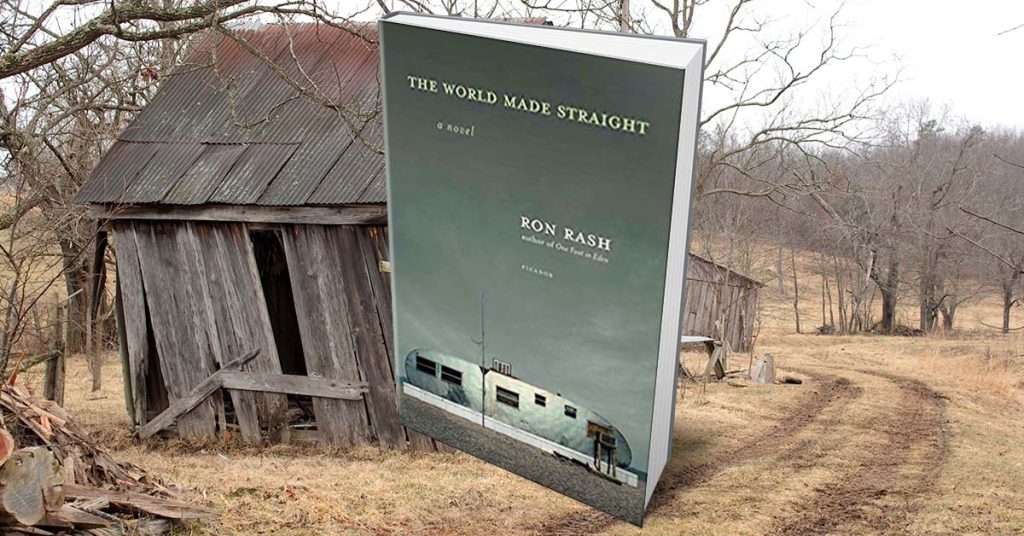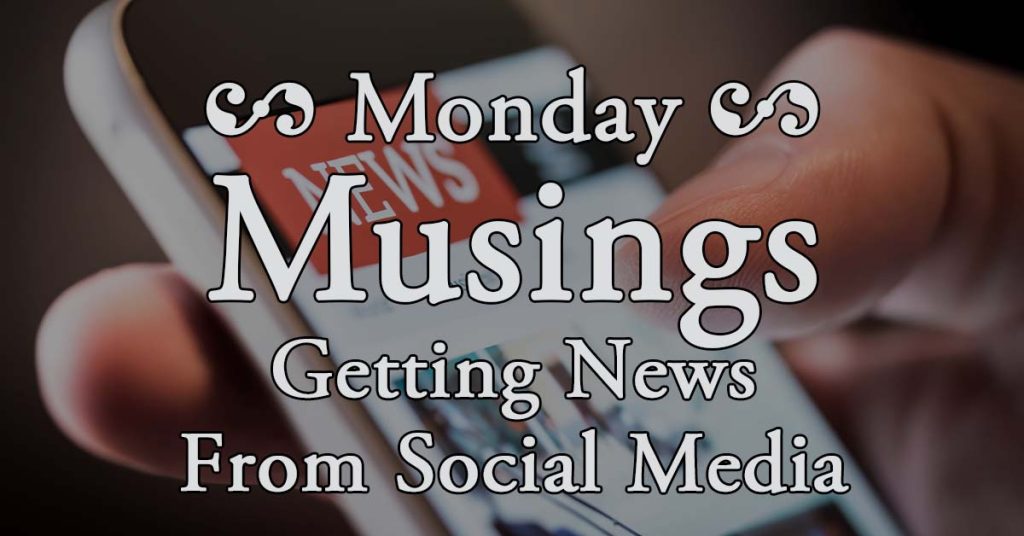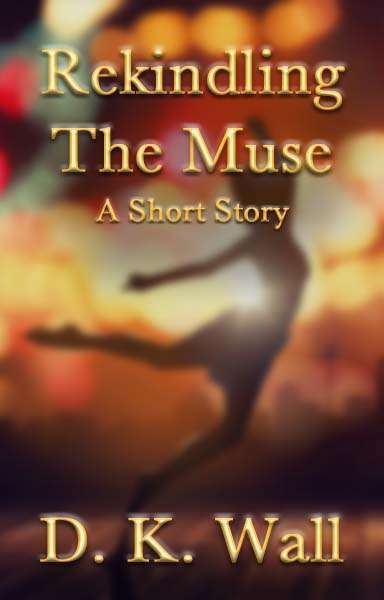Share This Musing
Musing: Getting News From Social Media
According to a recent survey by Gallup, a whopping 45% of people aged 15-24 get their information about current events from social media compared to 17% of those of us over 40.
Horrifying, right?
Or is it?
That same survey shows the level of trust in social media is not very different between the age group. Only 17% of the younger cohort and 12% of the older put “a lot” of trust in social media.
That gap is roughly the same in almost every other category. For example, 61% of younger people and 58% of older people put “a lot” of trust in doctors and healthcare workers.
So why do younger people rely so much on a vehicle for information when they don’t trust it? Perhaps because if you can wade through the untrustworthy material, there is much good in social media.
A couple examples:
Ukraine
I recently watched a podcast on YouTube with author Anton Eine. You may not have heard of him or know his books (I hadn’t), but the interview was fascinating. Why? Anton lives in Kyiv Ukraine with his wife and family. They had moved west to Lviv to avoid the Russian invasion, but Anton’s wife refuses to leave the country without Anton and Anton can’t leave in case the government calls him into military service.
Understanding the horrors happening in Ukraine is impossible from the relative safety of the United States, but listening firsthand to someone trying to protect his family is illuminating. Anton talks about how they are using their money to buy food and supplies for their fellow citizens who have lost everything.
(Side note—This is a link to Anton’s author page on Amazon. Check his books out. If any interest you, buy them. He receives royalties on them, of course, and that is one small way to help the people of Ukraine).
I have read dozens of articles in the international press trying to understand the plight of Ukraine, but none have brought them home as well as listening to Anton. Without social media, I would have never heard his words or even known who he was.
Wildfires
Understanding the nuance and detail and a major international event is one thing, but the other place social media excels is reporting on a hyper-local event.
A wildfire broke out in Maggie Valley this past week, threatening homes and forcing evacuations. Before firefighters contained it, three hundred acres burned.
Most of you never heard a word about the fire. No reasons for you to unless you have a connection to the town. It was but one of many fires in our dry mountains.
But we, of course, lived there for nearly two decades, so we wanted more information. Our old house sits not far from the blaze, though outside the danger zone. Worried about friends, we wanted specifics. So did others who owned or rented vacation homes or had visited. But where do you get news?
The local TV station and newspapers provided some details, but these aren’t big entities with endless reporters to throw at stories. They have to do the best they can with limited resources. Their reporting was factual and accurate, much to their credit, but we looked for more details.
Social media to the rescue. Because everyone with a cell phone and an internet connection can share information, we saw posts from people evacuating, helping, supporting, or waiting to hear if they needed to leave.
We learned exactly where the fire was, watched firefighters protecting homes, and saw aircraft scooping and dropping water.
Hurricanes and Flooding
We were in Charlotte for Hurricane Hugo. While the destruction was nothing like it was at the coast, we were caught off guard with a lack of basic supplies. Since 1989 was pre-internet days, our lifeline was a local AM radio station that broadcast nothing but pieces of information called in by citizens.
Today, the internet handles that same task.
When we lived in Murrells Inlet and went through hurricanes, we craved the details that can only come from local sources. Who has power and who doesn’t? Which streets are flooded or blocked with debris, and which are open? Who has food, ice, water, and other supplies? Which rivers and creeks are rising and will come out of their banks and which ones are handling the flow well?
And it wasn’t just catastrophic storms. Even mundane natural events can often be better reported on social media. The King Tides—the highest tides of each month—flood certain streets. Videos shared helped plan routes to avoid the problems.
Misinformation
Yes, of course, misinformation challenges social media. Sometimes, it’s malicious. Sometimes, it’s honest errors. During the Maggie fire, some confusion cropped up because of a second wildfire only a few miles away. Others jumped in, though, with more information that helped make sense of everything.
The worst of misleading seems to happen once an event is over. Now that the fire is out in Maggie Valley—without a single structure being destroyed to the credit of firefighters—the blame game flies about—the woulda, coulda, shoulda that always seems to follow these things. Much of that is people twisting information to support their opinions.
During the event, however, most of the information was accurate and timely. What was wrong was quickly corrected by others. With cellphones taking video and photos, we could see what was happening in near real-time.
Old Dog Learning New Tricks
The balance in younger people’s reliance and simultaneous distrust of social media makes sense. They willingly look for information on social media, but are viewing it critically to see if it is trustworthy. Frankly, that’s the same approach I take to reporting from more official sources, so why not apply it to social media.
As a long-time critic of social media, I’ve always been quick to deny I get my news from social media. “Oh, no,” I say, “I get news from reputable newspapers, magazines, or other places.” The reality, though, is social media can be hugely helpful in hyper-local, breaking news or understanding nuance in big stories.
So maybe next time I get asked if I get news from social media, I’ll answer yes. And not be ashamed of it.
Fun Photo

We start each morning walking the dogs along the neighborhood greenway. The sun rising filtered through the mist to create this peaceful effect.
Interesting Links: Dreamstime
In addition to writing, I’ve long enjoyed photography. To my frustration, many of my images have been copied and shared without permission. Services have been available to photographers to crawl the internet, find illicit photos, and demand they be taken down, but most of those have taken quite heavy-handed approaches. The most egregious have filed claims for thousands of dollars in damages against small businesses who may have not fully understood copyright.
Enter Dreamstime who has launched LicenseGuard. Like previous services, LicenseGuard will search online for images and notify offenders, but instead of large penalties, they will provide post-publication licenses at minimal fees. Their thought is educating those who are violating copyright will often be more effective than heavy-handed enforcement.
Recognizing my own responsibility to fellow artists, I’m careful to use only my own images or fully licensed images. For example, I paid for both the title image to today’s post and the image below in the Books Read section.
Books Read: The World Made Straight
I read 100 novels a year and share the best with you.

The present-day descendants of the Shelton Laurel Massacre, a Civil War atrocity, struggle to escape poverty and old conflicts.
Click for a more detailed synopsis
Vocabulary Word Of The Week: Agathokakological
This is one of those fun words because it’s fun to say (seriously—exactly as it’s spelled). It means something that is both good and evil.
The first part of the word comes from the Greek agathós or good and the second from kakós or bad. In case that kakós sounds a little familiar, it also traces further back in time to kaka, the Indo-European phrase for defecate.
Sadly, the word is rarely used, though it seems to fit so many situations.
Gratuitous Dog Picture
His Royal Highness Little Prince Typhoon Phooey earned his regal nickname for his consistent surprise that rules apply to him. Once again, a conversation ensues about his misbehavior and his look expresses the shock—the shock—that anyone might question his behavior.
4 Comments
Leave a Comment
Subscribe to the Random Musings
Want to be sure never to miss a Musing? Subscribers will be notified when I post a random observations on life or a short story. The email is absolutely FREE and you my unsubscribe at any time.
Current Reader Survey Question
Enjoyed the Story? Try a Short Story
Secrets, passions, and a reunion that changes everything
Benjamin Walsh sees his wife, Nicole, walking down a city street. With her busy schedule at work, he doesn't know how she found time to get away, but tries to catch up to say hello.
To his surprise, she greets an old friend of hers, Eduardo Rivera. Eduardo left town two decades earlier to pursue a theatrical career in New York. What is he doing back?
Benjamin is shocked when Eduardo and Nicole embrace. They disappear through a door together. With understanding of what is happening, Benjamin realizes he has only one choice.
Publication Date: February 6, 2024
Format: E-book (EPUB, MOBI, PDF)
Pages: 38
Price: Pay what you want (Minimum 99¢ to cover processing costs)





Beautiful place to take a morning walk. I get my news from different places depending on what I am seeking. The Little Prince has the EYES!!
So difficult sometimes to find exactly what news we want to inquire about!!! The path you walk looks SO peaceful! The Little Prince’s expression says it all!!! “You mean I HAVE to abide by that silly rule”????
Is this the podcast you listened to? https://youtu.be/n7ufi4X5G18
Yes, that’s it.